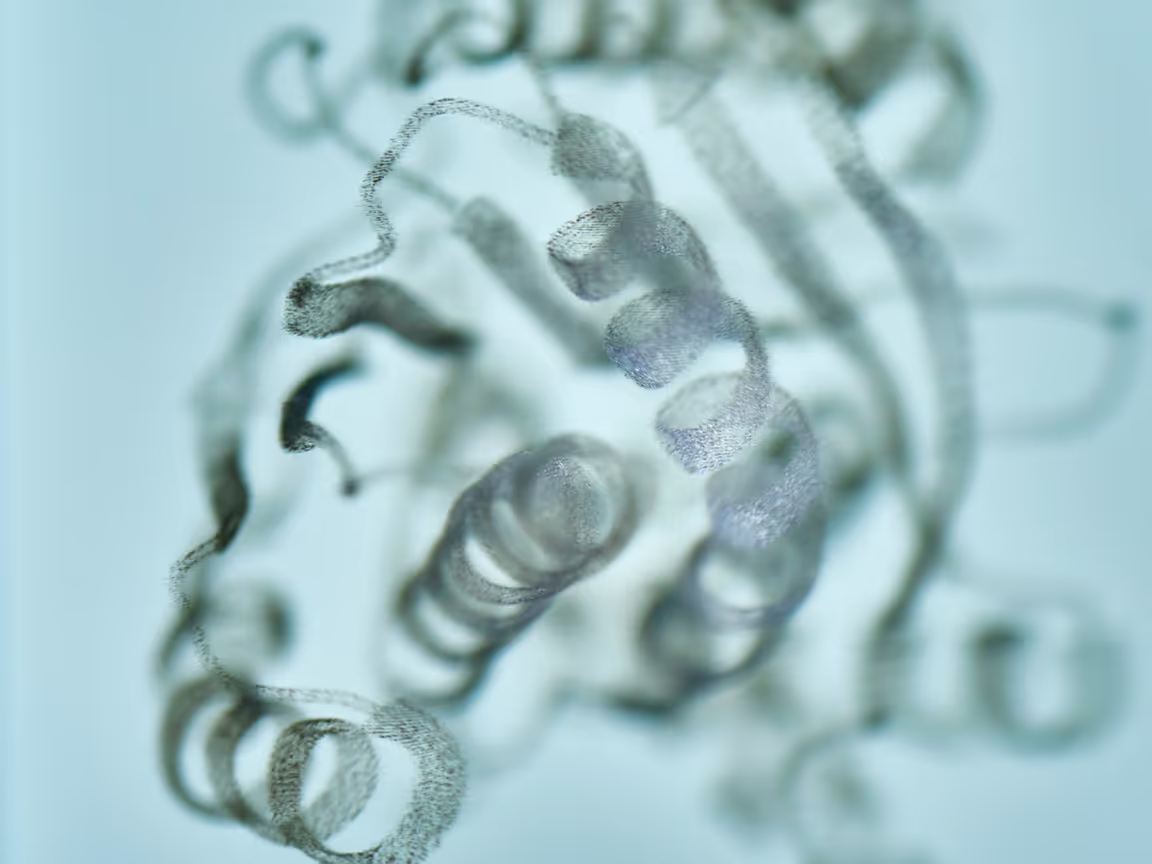At Inventure’s latest AGM, this is how Biomatter cofounder and CEO Laurynas Karpus explained how we discover and modify enzymes today. The fructose enzyme is one of the earliest and best examples. Discovered in the 50’s, it essentially allows you to throw corn and an enzyme into a bucket to produce high fructose corn syrup. Over the past 70 years this enzyme has been developed to improve efficiency and reduce costs, but this is a slow process with marginal gains.
In nature, enzymes have evolved to cover certain purposes and our ability to repurpose them for industrial use is reaching its boundaries. And with our limited ability to modify them with available tools, we’re hitting the edge of what’s “codeable”; limiting enzymes end usage and capabilities.
But what if you could design enzymes from scratch?
In a €6.5 million Seed round led by Inventure with our friends at UVC partners, we are thrilled to announce our investment in Biomatter, a company that can truly change everything.
The company story kicked into gear in 2019 when they were the first team to develop fully functional enzymes using generative AI, publishing in Nature Machine Intelligence. This was a major milestone in the synthetic biology field, opening up new research and development directions across the globe.
Now put into motion as their Intelligent Architecture platform, Biomatter enables a future where the only limitation in enzyme design is our creativity. We can work bottom-up from the problems we’d like to solve to create new enzymes, not just improve and repurpose what we find in the wild. This is a revolutionary way to think about creating the molecules we need, we can now start with basic principles.
Working with partners, Biomatter first determines the desired characteristics based on the intended application. Then, they either design the enzymes from scratch or significantly redesign existing ones. The team’s protein engineers can then create purpose-built molecules without traditional constraints.
“Enzymes will play a paramount part in the future of bioeconomy — they are the enabling piece that ultimately allows us to create new molecules, cells and organisms for the world. The unique enzymes we have successfully developed for our global partners so far demonstrate our capability to go far beyond the existing enzyme improvement paradigm. At Biomatter, we believe that the unlimited capacity to design new enzymes will help to build a better tomorrow for everyone,” says Laurynas Karpus, Co-founder and CEO of Biomatter.
Why we’re excited
As Laurynas just put it, enzymes are pivotal for the future of the bioeconomy. And with Biomatter as a catalyst we can use them to drive sustainable and efficient biochemical processes, reduce our reliance on fossil fuels, and significantly minimize environmental impact.
Take for example how Biomatter’s technology is already making a real world impact. In infant nutrition, Biomatter collaborated with Kirin, a global nutrition and health company, to develop novel enzymes for the efficient production of Human Milk Oligosaccharides (HMOs). This new approach could significantly improve infant health worldwide by making these crucial nutrients more accessible.
We’re still in the early days, but the potential use cases for Biomatter’s technology span multiple industries, with a few including:
- Advanced Therapeutics: Custom-designed enzymes could revolutionize medicine, offering new treatments for metabolic disorders and genetic diseases. Their work also opens new doors for advancements in clinical diagnostics and enzyme replacement therapies for conditions like Gaucher’s disease, Fabry disease, and Pompe disease.
- Biomanufacturing: From biofuels to synthetic materials, de novo enzymes could catalyze more efficient and sustainable production processes.
- Agriculture: Tailored enzymes could enhance crop growth, improve pest resistance, and increase tolerance to environmental stresses.
- Chemical Manufacturing: Custom catalysts could enable more efficient and environmentally friendly chemical processes.
The fact that Biomatter and its Intelligent Architecture platform is already working with globally listed companies like Cargill, Thermo Fisher Scientific, BASF, and Neogen at such an early stage shows this team’s ability to build strong partnerships. Biomatter has the potential to transform multiple industries, putting Europe back at the forefront of global innovation in crucial sectors like pharmaceuticals and chemical manufacturing.
Join this revolution
At Inventure we always look for transformative technologies that can reshape entire industries. With Biomatter, we’re no longer constrained to studying and slightly modifying the “laptops” we find in nature. Instead, we’re building entirely new, custom-designed “supercomputers” that can solve problems we’ve never been able to address before.
On behalf of Inventure, we’re thrilled to support Laurynas and his team as they push the boundaries of what’s possible. Today the only limit to what we can achieve with enzymes is our own imagination — and that’s a future we’re excited to be a part of. Browse their careers page to see how you can join the ride as well.



